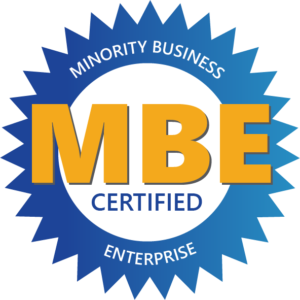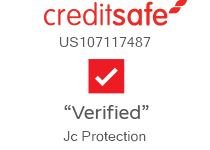10 Essential Security Tips for Your Small Business
By Clifford Strong, CEO of JC Protection LLC | September 17, 2021
Even the smallest business owns valuable assets, and it’s not only the machinery and equipment you have invested in that is worth a lot of money. Contact lists, bookkeeping records, and other documents and data essential to your operation would be sorely missed if they were lost or stolen.
Everything that is needed to run a small business is often held in one office, so small enterprises are arguably more vulnerable to security breaches than larger organizations. A single break-in to your business premises would not only be costly, but it could also halt business operations entirely.
But how much attention do you pay to the security of your business assets? Have you taken every step possible to protect the business you have worked so hard to build? Cast your eye down these ten business security tips to see if you have everything covered.
- Make Security a Company Priority
Whether you are a one-person company or have employees, your business’s security must be a priority for all. You may think that your one aging personal computer is not going to be a target. You might believe that thieves will not waste their time targeting such a small company. But, unfortunately, that is not true. There will always be people looking for ways to exploit weaknesses in the security of any business. So, small business owners and their employees need to always on their guard against theft and fraud.
- Vet Employees
Sadly, theft from businesses is often perpetrated by employees, and some people view petty theft from their employer as little more than an employee benefit. You might be willing to turn a blind eye to the occasional item of office supplies walking out the door. However, some dishonest people will be prepared to go much further, so it is advisable to always take up references from past employers before offering anyone a job. If an employee is hired to work in a position of trust or with valuable stock, a background check would be in order. Vetting employees might seem over the top for small businesses. Even so, it is better to be safe than sorry.
- Implement Adequate Internal Controls
Once a business grows, it becomes impossible for the owner to supervise everything personally. So, the next best thing to prevent theft and fraud is to implement strict internal control procedures. You might, for example, allow a trusted employee to sign checks up to a specific value, but checks over that value must be countersigned by you. It would be advisable to control who can raise purchase orders or sign contracts on behalf of the company. It would also be advisable to insist that the removal of any assets like laptops from the business premises is approved beforehand and documented.
- Install High-Quality Locks
Make sure that your business premises are as secure as possible, even if you don’t hold valuable items in stock. Fit high-quality deadlocks to all doors, and make sure all the windows are protected too. Burglars generally go for the easiest target. So, the first line of defense against burglary is to make it as difficult as possible for thieves to break in. And remember not to leave branded packaging for items like computers out in plain sight because that will tell thieves that you have something inside worth stealing.
- Install Security Cameras and Alarms
Security alarms and cameras are advisable in all business premises. You don’t need to spend a fortune on professionally installed security systems. There are plenty of low-cost wireless alarm systems that will provide adequate protection for a small business. Security systems will provide a deterrent against burglary. And security cameras can also be used to deter employee theft. Even if you rent an office in a shared building, a basic motion-sensing alarm will scare off an intruder if they break into your office when no one is there.
- Invest in a Security Safe
Checkbooks, petty cash, and confidential documents are best stored in a secure safe. You don’t need a top-rated safe to deter most thieves, but a decent quality fireproof safe will protect valuable items against both theft and fire. Remember to bolt the safe down to the floor or a wall, though. A relatively small safe that is not bolted down could be taken by a thief and opened later.
- Control Keys and Access Cards
Handing out keys or access cards to employees and contractors is excellent for everyone’s convenience. However, who gets those keys should be strictly controlled and recorded, and a procedure should also be in place to ensure keys get returned when an employee leaves the company or a contractor finishes work for the day. Remember, it’s not only at night that thieves strike. If someone has the key to your office, they could let themselves in when everyone else has gone out for lunch or in a meeting.
- Manage Visitor’s Access
You don’t want to make visitors to your business feel unwelcome. However, it would be wise to ask visitors to follow specific protocols. People visiting your business premises should be given a visitor’s pass to wear. They should also be asked to sign in when they arrive, and sign out and return their pass when they leave. Staff should be encouraged to challenge any unaccompanied strangers in the building without a security pass or behaving suspiciously. And you may wish to restrict access for visitors to some areas of your business premises. Without proper security, anyone could walk unchallenged into your office and steal from your business.
- Protect Your Digital Assets
For many businesses, the data held on computers is as valuable as the physical assets they own. So, robust cybersecurity is another point to add to your business security action plan. Make sure that you have anti-virus and anti-malware software installed on your computers. Instruct staff to use strong passwords and not to use laptops on unsecured public Wi-Fi connections, and backup all essential data daily and keep backups off-site. Even if your company data is not sensitive, the loss of information could have a devastating effect on your business’s smooth operation. Once your business expands, cybersecurity will become more complex. So you might want to consider hiring a professional information technology (IT) company to conduct a cybersecurity audit.
- Protect Physical Assets with GPS Trackers
Valuable physical assets should be marked with non-removable asset markers. These markers will deter theft and help identify your property should it be later recovered. It is also advisable to install global positioning system (GPS) trackers on assets to quickly find stolen or lost items. GPS trackers can also help ensure that company vehicles are only being used for approved business purposes.
Conclusion
The critical point to take away from the above is that any business of any size can become a victim of crime. So, it is best to take steps now to protect your physical and digital assets and vet employees before you hire them. The more difficult you make it to steal from your company, the less likely it will be that your business will be targeted.
JC Protection LLC is ready to assist with your business’s security needs. Please contact us today.





